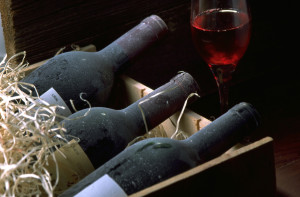Wine Investment For Beginners
 Investors finding difficulty in today’s volatile stock and bond markets or simply looking for something fresh and unique may find new avenues of opportunity in the market for wine.
Investors finding difficulty in today’s volatile stock and bond markets or simply looking for something fresh and unique may find new avenues of opportunity in the market for wine.
Most investment-grade wine trading occurs by the case, which contains twelve standard-sized wine bottles. The most sought-after fine wines can sell for upwards of £8000 per case. Perhaps due to luxury wine’s status as a province of the wealthy elite, prices have little to no correlation with stocks and maintain relatively stable gains over time. For these reasons, fine wine is becoming quite an attractive investment.The wine equivalent of the FTSE 100 is the Liv-Ex Fine Wine 100, a price index of 100 popular vintages as selected by the London International Vintner’s Exchange, a wine exchange founded in London in 1999. The gold standard of wine investment is “First Growth” Bordeaux red. This grade, Premier Cru in French, has nothing to do with when the grapes are grown – it is simply a classification bestowed on certain premier wineries. This list of first-growth Bordeaux wines, originally ordered by Emperor Napoleon III, has changed little since 1855, and represents what the winemaking industry has consistently considered to be the highest-quality wines in the world.Liv-Ex published the “Liv-Ex Bordeaux Classification” in 2009 in an attempt to update the list to reflect current market values. This classification was updated in 2011. Not surprisingly, the original first-growth Bordeauxs all command top spots in the new classification.
Proper storage is essential to preserving a bottle of wine’s investment value. Nearly all investors have their wine stored at professional facilities that carefully maintain control over temperature, humidity, and other environmental factors. Case- or locker-sized storage is available. This helps to establish the wine’s pedigree – gaps in storage history can lead to a decrease in value. Despite this, some investors do choose to store their wine in their own custom-built wine cellars.
Many investors get started in wine by investing in a wine fund. These funds typically require initial investments of over £10,000. Non-enthusiasts can have the comfort of knowing that top wine experts are managing the purchase, sale, and storage of their wine. Certain of these funds even offer to pay part or all of the investor’s yearly dividends in wine. Other investors may buy a single case as an initial investment. There is also a trade in single bottles of extremely old or rare wines.
Wine futures are a unique wine investment vehicle that has emerged over the past few decades. Wine futures are sold in the time period after the wine has been put into casks but before it has been bottled; this may represent up to a two-year gap. This is a gamble on the part of the investor and represents how well the investor believes that particular vintage will perform – the vintage may turn out to be a relatively poor one with low demand, and the value of the wine will decline over time. However, futures also offer the highest potential for returns. If the vintage turns out to be especially high-demand, the investor has obtained an extremely valuable wine at the lowest price at which it will ever be sold.